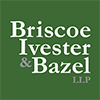 Whistleblowers Can Win Big For Fraud In Government
Whistleblowers Can Win Big For Fraud In Government
“Where there is a wrong there is a remedy” has been a bedrock rule of the half of our law called “equity.” The other half, confusingly enough called “law,” has not always subscribed to that principle. The courts, at the urging of every administration, have constructed various elaborate legal barriers to justice for wrongdoing involving the government: sovereign immunity, standing, ripeness, mootness, justiciability. The current administration is not likely to buck that trend. While some constitutional law scholars and experts made headlines earlier this week in their effort to assert an alleged Emoluments Clause violation in federal court, the False Claims Act already provides a potent remedy.
The False Claims Act allows individuals to bring suit in the name of the United States against people who improperly receive money from the government or avoid payments (other than federal taxes) due to the government. Liability could arise, for example, should a government official use his or her official position to get the government to waive personal or business debts to the government, or should a business knowingly make a material false statement to induce the government to award a contract.
If the suit is successful, defendants are liable for civil penalties, double or treble damages, costs and attorney fees. The individual bringing the suit may keep, as a reward, up to 30% of the damages collected, which, given the size of many government contracts, can amount to large individual recoveries.
The Act has some unusual procedural trappings. It provides for a lengthy six- to ten-year statute of limitations. Actions may not be based on already public information, unless the person bringing the suit was the source of that information. Actions must first be filed under seal, and not served on the defendant, so as to give the government an opportunity to investigate the matter and decide whether to assume primary responsibility for the litigation.
Most plaintiffs in these cases are governmental insiders or contractors who want to blow the whistle on wrongdoing. To protect and encourage whistleblowers, the Act provides for a doubling of damages whistleblowers might suffer as the result of retaliation.
The False Claims Act should continue to provide a powerful legal tool against private interests corrupting the business of good government.
Peter Prows
Briscoe Ivester & Bazel LLP
155 Sansome Street, 7th Floor
San Francisco, CA 94104
Telephone: (415) 402-2700
Fax: (415) 398-5630